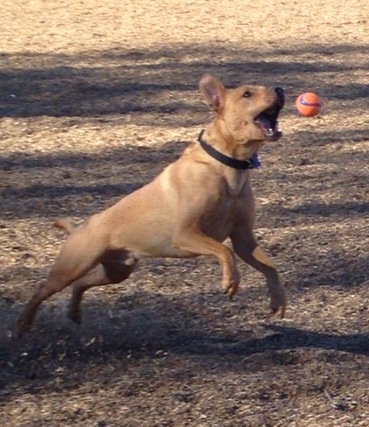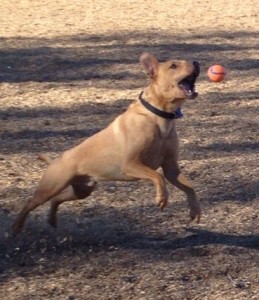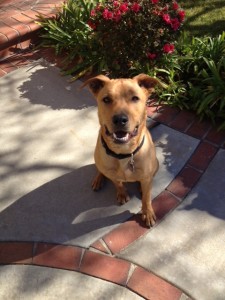God in a Dog
Posted by Dara Holland on Feb 24, 2014 in Featured | 0 comments
 My dog totally gets the concept of grace. Maybe it’s because he has some faint canine memory of being separated from his mother at a too-early age, dumped at a high-kill shelter, and then rescued by his foster before being adopted, returned, and adopted again–this time for good by yours truly, my three kids, and our indifferent cat. He seems to appreciate his happy ending. Then again, he’s a dog.
My dog totally gets the concept of grace. Maybe it’s because he has some faint canine memory of being separated from his mother at a too-early age, dumped at a high-kill shelter, and then rescued by his foster before being adopted, returned, and adopted again–this time for good by yours truly, my three kids, and our indifferent cat. He seems to appreciate his happy ending. Then again, he’s a dog.
Dogs tend to forgive and forget.
Giving grace means letting others off the hook from what they deserve. For people, it’s an intentional decision to not only move on from the bad, but to give the offender a pass because you want better for them. What you want for them is love–maybe even for them to love themselves.
Too much credit to give a dog? I don’t think so. Dogs understand love implicitly. And giving grace is the supreme demonstration of love. But yeah, even in the dog world, some love better than others.
Take my dog, Rusty. I’m staring at him, moments after we’ve entered the dog park. To Rust, this place we frequent is Doggy Disneyland; to me, it’s a microcosm of the world, a constant study in good and bad behavior–individual and group, canine and human. Dogs and their owners come and go and, with each addition and subtraction, the energy changes. Right now, Rust and I are the last ones into the park. And at the moment, things don’t feel good.
As I stroll in and get ready to sit at a picnic table, I see my Heinz 57 companion still near the gate, being cornered by three bigger dogs. Fur raises on backs and necks, tails go straight up, eyes narrow . . . and I start to pay more attention. Two of the dogs are pit bulls and the third is a Husky. They’re all looking like they want to open a can of woof ass.
Rusty is part pit, too, lean, muscular, and fit from daily acrobatic fetching. (I like to call him “Ball Catcher Extraordinaire.”) Briefly, I start to wonder how those genes might inform his strategy. We’ve always said Rusty is a lover and not a fighter, so I’m half-expecting him to roll on his back and submit. Instead, he shows me a side of his personality I’ve never seen before.
As I stand up at the table, I see my dog stiffen his stance, curl his top lip, and bare his teeth. An audible growl is coming from Rusty, and it gets louder as I watch.
The energy shifts.
And, after a moment, the other dogs visibly relax. Fur goes smooth, tails start to sway, eyes recalibrate, and tongues drop out of mouths. Rusty has apparently passed some sort of test. Or, scared the crap out of the dog park bullies. Then, amazingly, Rusty takes a step forward and licks the closest dog in the face. I’m no dog whisperer, but I’m gonna go with the following translation: “Yeah, I thought so. You know I love ya, right?”
Next, Rusty trots over to me with his head held high, velvety  ears flapping, and happily panting. He gives me the look. “Ready to fetch?” I ask. His eyes focus on my hand. I use our well-worn Chuck-It to throw the ball long and hard across the park, and Rusty sprints away. The other dogs race and play among themselves, then change direction as the gate clinks shut at the front of the park this time. In an instant, they’re off to greet the latest dog and human to enter the arena.
ears flapping, and happily panting. He gives me the look. “Ready to fetch?” I ask. His eyes focus on my hand. I use our well-worn Chuck-It to throw the ball long and hard across the park, and Rusty sprints away. The other dogs race and play among themselves, then change direction as the gate clinks shut at the front of the park this time. In an instant, they’re off to greet the latest dog and human to enter the arena.
The Bible says to be slow to anger and quick to forgive. Cesar Millan, who’s the real Dog Whisperer (“All hail Cesar!”), will tell you dogs live in the moment.
Put the two together and you get Rusty: God in a dog.

